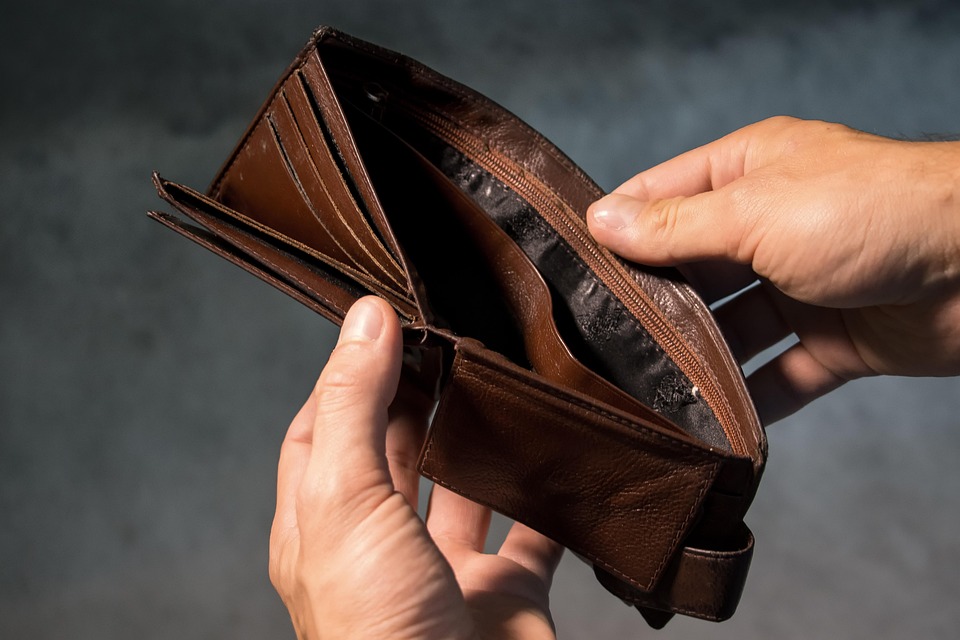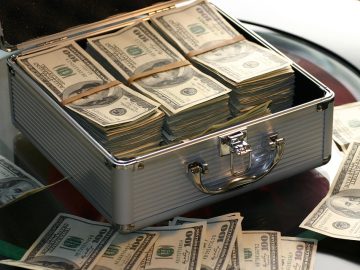Imagine needing to fix your car or pay for a medical emergency and realizing you don’t have the money. You’re not alone. A U.S. News survey found that 42% of Americans don’t have an emergency fund, and nearly 40% would struggle with a $1,000 unexpected expense. Even among high-income earners, financial stress is growing. Some Americans consider that just $250 could make the difference in paying groceries or utility bills.
Many problems with money happen because people don’t track their spending. Without knowing where your money is going, it’s easy to overspend and leave yourself vulnerable to financial emergencies. Tracking your daily expenses helps you take control, reduce debt, and build financial security. Let’s explore why it matters and how to do it effectively.
Why is Tracking Your Expenses Throughout the Month Important?
Keeping track of every monthly expense gives you a clear picture of where your money goes. You see your cash flow in real-time when you record each payment—your morning coffee, a streaming service fee you overlooked, or a $255 online cash advance you used for an unexpected medical bill. This detail shows which costs are necessary and which ones you can trim before they create overdraft charges or high credit card balances.
Regular checks also highlight patterns soon enough to make changes. If you notice that your grocery spending is already three-quarters of the monthly limit by mid-month, you still have time to adjust your meal plan instead of overshooting the budget. Reviewing expenses against your planned amounts helps you set practical limits for areas like entertainment or transport.
Reliable day-by-day data supports bigger goals, such as building savings, reducing debt, or increasing retirement contributions. You can only redirect money when you know exactly how you spend it. Tracking expenses each month is not busywork; it is a straightforward way to keep daily decisions in line with your long-term financial plans.
What Will Tracking Expenses Help You Do?
Even if you don’t see the benefits in the short term, they show over time, and you’ll find out how to:
Identify Spending Patterns
Many people underestimate how much they spend on small purchases. A few dollars here and there can quickly add up. By tracking your expenses, you can recognize patterns, such as spending on drinks at a local coffee shop, subscriptions, or impulse buys.
Set Realistic Budgets
Budgeting without knowing how much you spend is like dieting without checking what you eat. Tracking your money allows you to set a budget that reflects your real expenses rather than just rough estimates.
Avoid Debt
Overspending leads to credit card debt, personal loans, or payday loans. When you track expenses, you can identify problem areas and reduce your expenses before you get into financial trouble.
Save More
If you’re wondering why you can’t save money, tracking your expenses will reveal the answer. Once you see where your money goes, shifting some of that spending toward savings or investments is easier.
Common Financial Pitfalls That Lead to Emergencies
Many financial emergencies happen because of poor money management. Here are some common mistakes that cause stress:
-
Impulse buying. Making unplanned purchases leads to unnecessary expenses.
-
Living beyond your means. If your lifestyle is too expensive for your income, you’ll eventually face problems.
-
Ignoring small expenses. A $5 croissant daily adds up to over $1,800 a year.
-
Not having an emergency fund. Without savings, even small setbacks can turn into financial crises.
How to Track Your Spending Effectively
Here are several tips on how you can monitor your budget and save money in the long term:
Use Special Apps
Many budgeting apps make expense tracking easy. Some of the best include:
-
Mint – Connects to your bank accounts and categorizes spending automatically.
-
YNAB – Helps you plan every dollar to avoid overspending.
-
Personal Capital – Tracks both spending and investments.
Keep a Spending Journal
If you prefer a manual approach, write down everything you spend. This will make you more aware of your purchases and help you control unnecessary spending.
Review Bank Statements
Check your bank statements regularly to see patterns in your spending. Look for subscription services you forgot about, random charges, or trends that need adjusting.
Set Alerts
Banks and credit cards allow you to set up alerts for purchases or low balances. This can help prevent overdrafts and fees.
Budgeting Methods to Stay on Track
Choose the option that better fits your financial needs:
50/30/20 Rule
This simple method divides your income into three categories:
-
50% for needs. Rent, groceries, utilities, insurance.
-
30% for wants. Dining out, entertainment, hobbies.
-
20% for savings and debt. Emergency fund, retirement, and paying off loans.
Zero-Based Budgeting
With this method, every dollar is assigned a purpose. Your income minus expenses should equal zero, ensuring that all money is spent wisely or saved.
Envelope System
Use cash-filled envelopes for different expense categories. When an envelope is empty, you can’t spend more in that category. This is great for people who tend to overspend.
Cutting Unnecessary Expenses Without Sacrificing Comfort
Making small changes can free up extra cash without making life difficult. Cooking at home instead of dining out can lead to significant savings. Canceling unused subscriptions is another effective way to cut costs, as many people continue paying for services they rarely use.
Coupons and cashback apps like Rakuten and Honey can help save money on everyday purchases. Shopping smarter by planning grocery trips and avoiding impulse buys can prevent unnecessary spending.
Why Emergency Funds are Important for Your Financial Stability?
An emergency fund is essential for preventing financial crises by covering unexpected expenses such as medical bills or car repairs. Having one ensures you don’t rely on credit cards or loans in emergencies, reducing financial stress by providing a safety net.
It also helps you stay on track with your budget. You should save enough to cover three to six months’ living expenses. Start by setting aside small amounts and gradually build your fund over time.
Build Long-Term Financial Security Through Smart Money Management
If you want to avoid stress, make money management a habit. Here’s how:
-
Keep learning. Read books, take online courses, or listen to finance podcasts.
-
Set financial goals. Short-term (pay off debt) and long-term (buy a house, retire comfortably).
-
Review your budget regularly. Adjust it as needed based on changes in income or expenses.
-
Automate savings. Set up automatic transfers to your emergency fund or retirement account.
Bottom Line
Keeping track of your daily expenses might seem small, but it can save you from big financial headaches. When you know where your money goes, you can spot problems early, cut unnecessary costs, and build a safety net for emergencies. It’s not about giving up everything fun. It’s about being smart with your cash.
A simple habit like tracking your spending can help you stay in control, avoid debt, and reduce stress. So, grab a notebook, use an app, or check your bank statements regularly. A little effort today can keep your finances strong and secure for the future.
Media Contact
Company Name: US News
Contact Person: David
Email: Send Email
City: New York
Country: United States
Website: https://www.usnews.com/






